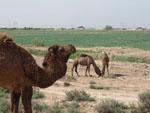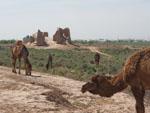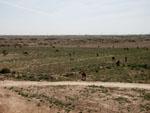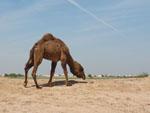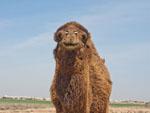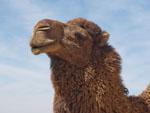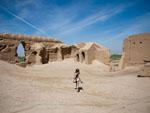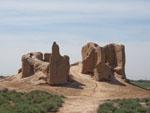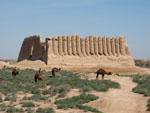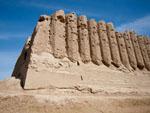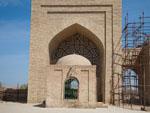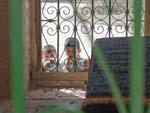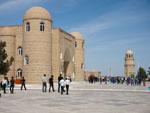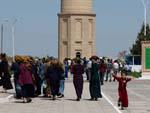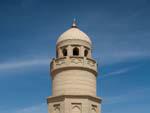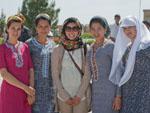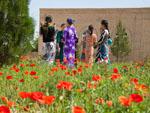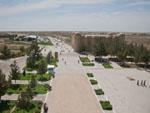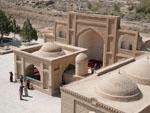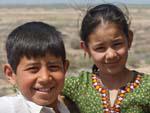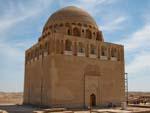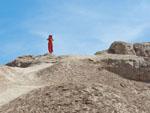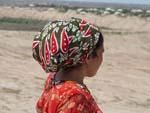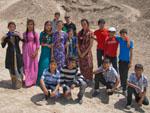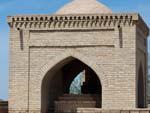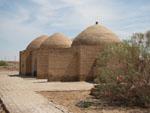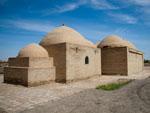Our first stop in Turkmenistan after crossing from the Saraghs border was the town of Mary. We stayed at the Hotel Terminal near the train station (or wokzal , in Turkmen) after striking a deal with the taxi driver. I would probably not recommend this hotel as it was rather unclean and lacked even the basics (i.e. curtains, blankets). However, it was late at night by the time we arrived, so we had to make do.
thydzikgooglemap(http://sonyaandtravis.com/maps/mashhad-iran-to-merv-turkmenistan.xml)
The following morning we had breakfast at a Russian restaurant. We had buckwheat with sausages, and meat dumplings in soup which was delicious. We then tried to arrange for a taxi driver to take us to historical site of Merv, located about thirty kilometres from the town of Mary, finally agreeing 50 manat for a four hour round trip. On our way to Merv, we drove though Mary, observing its numerous Soviet style government buildings.
Merv is a UNESCO heritage site and while much of the site is in ruins, it was a great way to observe the local Turkmen culture as well as to learn a bit about Turkmenistan’s past. The ancient site was quite the place during the Silk Road days of the 11th and 12th century. It is said that Merv may have inspired the famous story of Thousand and One Nights. At the site we had quite a few people approach us for photos, particularly the younger children and teenagers. I loved the way the women dress in their colourful ankle length dresses embroidered with traditional Turkmen designs and paired with an equally colourful headscarf.
We visited the following in the complex:
Kyz Kala (Great Kyz Kala and Little Kyz Kala) – two mudbrick wall structures built during the 7th century by the Sassanians. The place was surrounded by funny looking camels.
Mausoleums of Two Askhab – a significant pilgrimage site for two companions of the prophet lies in front of Timurid iwans.
Mausoleum of Mohammed Ibn Zeid – another pilgrimage site, we noticed a number of Turkmens circulating this 12th century mausoleum.
Mausoleum of Sultan Sanjar – with a very attractive interior and an interesting history (Sanjar, for whom the mausoleum is built, died of a broken heart when after escaping from Khiva (now in Uzbekistan), returned to find Merv in ruins after fearless Mongol Chinggis Khan’s soldiers had attacked.
Erk Kala and surrounding fortress of Giaur Kala – we climbed the circular walls of Erk Kala, thought to be the oldest of the five Merv cities (6th century BC) which allowed us to view the wider Giaur Kala (3rd century BC). Remnants of a Buddha’s statue were found in the area making it the most Western point which Buddism reached.
After Merv, we took a shared taxi with a Russian woman and her daughter to Asgabat, the capital city of Turkmenistan. After being unable to find the homestay which we had planned to stay at, we ended up at Hotel Asgabat which was alright, albeit slightly more expensive than the other places we’d stayed. We had dinner (pizza) at a nearby Russian cafe which had American tunes blasting from the huge flatscreen.
thydzikgooglemap(http://sonyaandtravis.com/maps/merv-turkmenistan.xml,s)




































































































